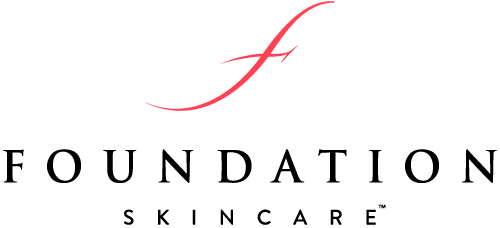The benefits of exfoliation are often touted by beauty experts and dermatologists. Images of bright, smooth skin may have you wondering if you should try it, but if you live with rosacea, it is important to determine if exfoliation is right for you and, if so, how and when you should do it.
Understanding Rosacea
Rosacea is a chronic, inflammatory skin condition that usually starts in your 30s. You might see redness, rash, or visible blood vessels on your cheeks, nose, chin, or forehead. You may also have bouts of acne, skin thickening, or eye irritation.
While there isn’t a cure for rosacea, doctors know there are both genetic and environmental causes. Treatments focus on avoiding triggers and preventing complications to control the condition.1
The Role of Exfoliation in Skincare
Let’s not forget that your skin is an organ - in fact, it’s your largest organ - and like other organs, you need to take care of it. Typically this means keeping it clean, protecting it from the sun, and moisturizing.
Over time, your skin can accumulate excess dead skin cells that can cause dry, flaky patches of skin and clog pores. Periodic exfoliating helps remove these cells before they blemish your skin. Studies show that long-term exfoliating can increase collagen production which helps with skin elasticity, minimizing fine lines and sagging.2
Is Exfoliation Safe for Rosacea-Prone Skin?
People with rosacea typically have sensitive skin so you must use caution when caring for it. Many exfoliants can irritate your skin and may worsen your rosacea. You want to talk to your dermatologist to determine if exfoliation is right for you, when you can do it safely, and what products are best for your skin.
Choosing the Right Exfoliants for Rosacea
There are two types of exfoliants - physical and chemical.
Physical exfoliants
Physical exfoliants require manual rubbing or scrubbing of your skin. They include scrubs, body brushes, loofahs, or washcloths and aren’t typically appropriate for people with sensitive skin and rosacea. Not only can scrubbing irritate your skin, but it also encourages water loss, which can cause more dryness and flaking.4
Chemical exfoliants
Chemical exfoliants use enzymes to remove the dead skin cells. Again, you must be careful to choose the right ingredients to avoid irritating your skin.
There are several different types of chemical exfoliants. The most common ones are alpha hydroxy acids (AHAs), beta hydroxy acids (BFAs), poly hydroxy acids (PHAs), and retinoids. Check the ingredients before using so you choose exfoliators for sensitive skin.
- AHAs include ingredients like glycolic acid or lactic acid, which act to peel away surface skin allowing new cells to generate. These are typically used in anti-aging products and help reduce age spots, fine lines and wrinkles, enlarged pores, scars, and uneven skin tone. If you have rosacea, AHAs may be too harsh for your skin.9
- BHAs contain salicylic acid that goes deeper into the hair follicles on your face to unclog pores, calming redness and inflammation. These may be better for people with rosacea, but check with your dermatologist before using.9
- PHAs include ingredients like lactobionic acid and gluconolactone that are generally the best chemical exfoliant for sensitive skin or rosacea. The treatment stays on the skin’s surface, preserving your skin’s natural moisture barrier. They also have anti-inflammatory and antioxidant properties, protecting your skin from damage.9
- Retinoids are made from vitamin A and can reduce acne and signs of aging. They contain ingredients like retinol, adapalene, or alitretinoin and can be sold over the counter or by prescription depending on the strength. A good choice is Foundation Skincare’s Night Renewal Cream. It has 2 percent granactive retinoid, which is formulated to minimize skin irritation.
- Products containing azelaic acid, an antiseptic that unclogs pores and kills bacteria, are a good choice for people with rosacea. It reduces redness and prevents dark patches on your skin. In studies, 70-80 percent of people see improvement in rosacea symptoms.10 Foundation Skincare offers a medical-grade, dermatologist-formulated Azelaic Acid 14% Cream, which doesn’t irritate or sting sensitive skin.
If you have sensitive skin, you may want to pair your exfoliant with a skin barrier7 product containing niacinamide, a B vitamin with anti-inflammatory properties that protects the skin from environmental stress and moisture loss. Foundation Skincare’s Niacinamide Lotion 10% helps balance oil production to control and prevent acne.
How to Exfoliate Safely with Rosacea
When you have rosacea, choosing the right exfoliant is crucial to getting the benefits without causing additional damage to your skin.
Make sure you choose something that is gentle, and test it on the underside of your arm before using it on your face.
In general, you want to avoid products that will dry or irritate your skin like alcohol, witch hazel, retinoids, menthol, camphor, or eucalyptus. Your exfoliant should not cause burning or stinging. You also want to look for fragrance-free products, not just unscented, as even mild fragrance can include irritants.6
Apply exfoliant with your fingertips in gentle circles. Don’t use a washcloth or motorized brush. Make sure you thoroughly rinse all the product off with warm water.7
While many products suggest exfoliating multiple times a week, if you have rosacea, do it once a week or less. Do not exfoliate if you have an active breakout, redness, or inflammation.6
Additional Skincare Tips for Rosacea
Treating rosacea requires extra care. Try these expert tips to avoid additional skin damage:7
- Wash your face with a gentle cleanser twice a day, use moisturizer, and protect your skin from the sun.
- Avoid anything that triggers your rosacea symptoms, like foods, fragrances, or harsh ingredients.
- Use creams, like Foundation Skincare’s Azeliac Acid 14% Cream, rather than lotions or gels.
- If your skin is dry, get added protection and hydration from Foundation Skincare’s Hyaluronic Acid Lotion.
- Don’t use astringents or toners.
- Use a broad-spectrum sunscreen.
When to Consult a Dermatologist
Skincare is unique for everyone and can be complicated by rosacea. Get your dermatologist’s advice on creating a skincare routine based on your skin conditions and tolerance levels, including whether or not exfoliating is right for you.
You should also reach out if you have a bad reaction after using an exfoliant.
When done right, you can get the benefits of exfoliating even if you have rosacea. The key is to be smart about products and frequency, making sure you are communicating with your dermatologist, and getting treatment if you have concerns.
References:
-
https://www.niams.nih.gov/health-topics/rosacea
-
https://www.healthline.com/health/beauty-skin-care/meaning-of-exfoliating
-
https://www.healthline.com/health/beauty-skin-care/how-often-should-you-exfoliate-your-body
-
https://mddermcare.com/is-it-okay-to-exfoliate-with-rosacea-navigating-gentle-skin-care
-
https://www.webmd.com/beauty/what-to-know-skin-exfoliation
-
https://www.medicalnewstoday.com/articles/exfoliating-with-rosacea
-
https://www.aad.org/public/diseases/rosacea/triggers/tips
-
https://curology.com/blog/is-it-okay-to-exfoliate-with-rosacea/
-
https://www.elle.com/uk/beauty/skin/a41177/acids-for-skin-benefits-aha-pha-bha/
-
https://www.webmd.com/skin-problems-and-treatments/what-to-know-about-azelaic-acid-skin





